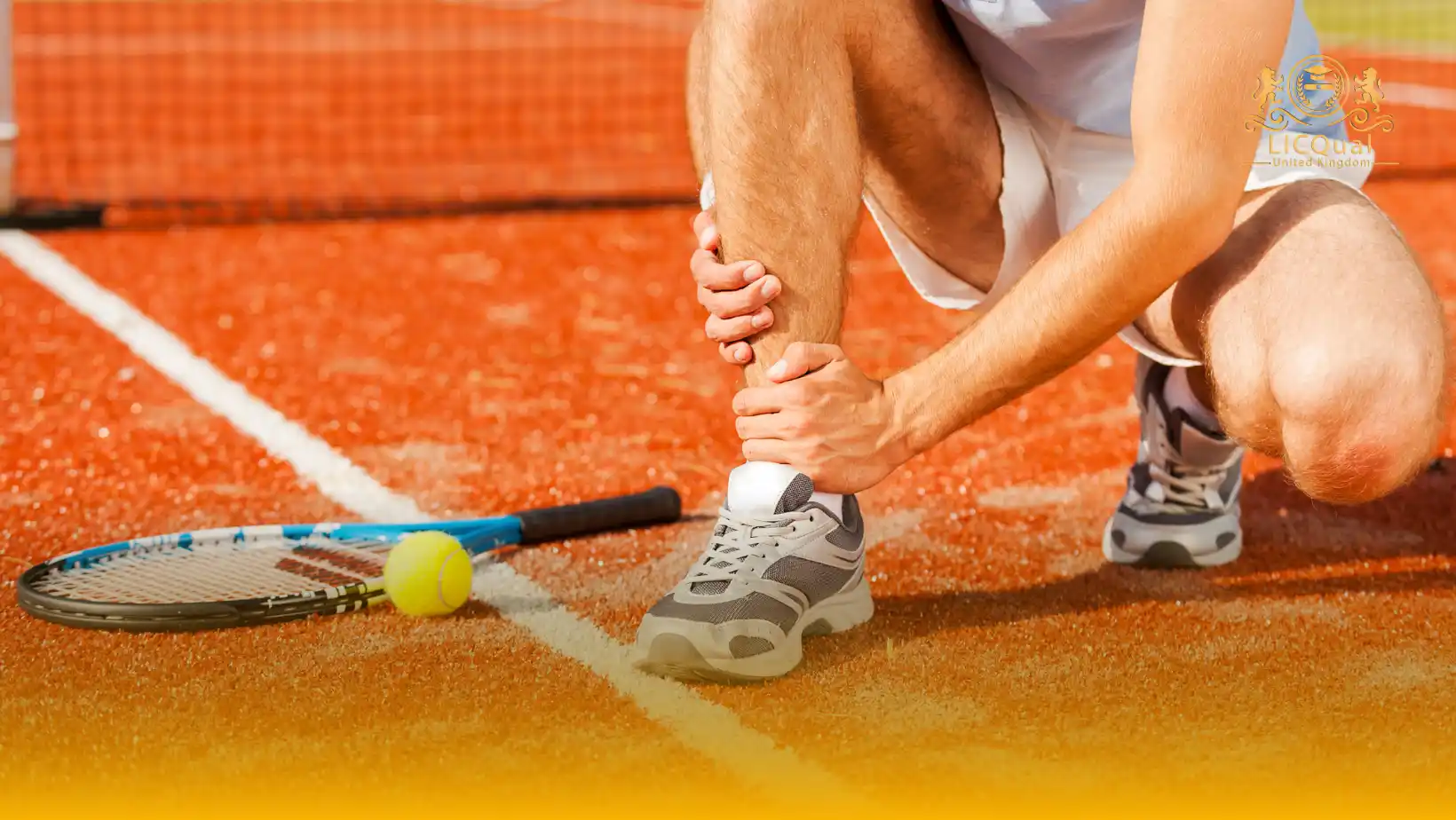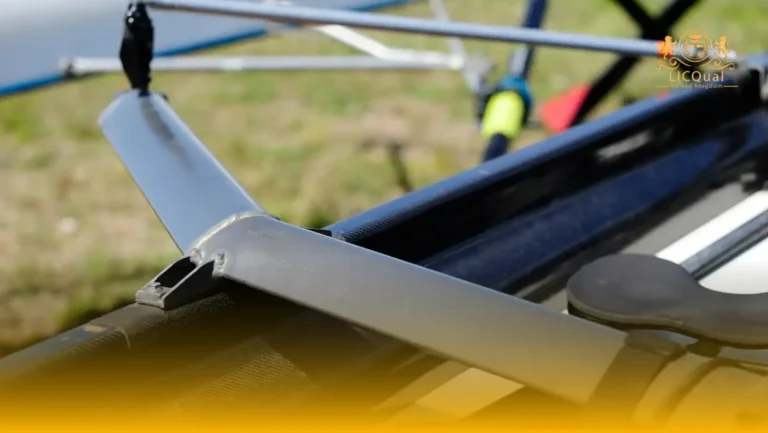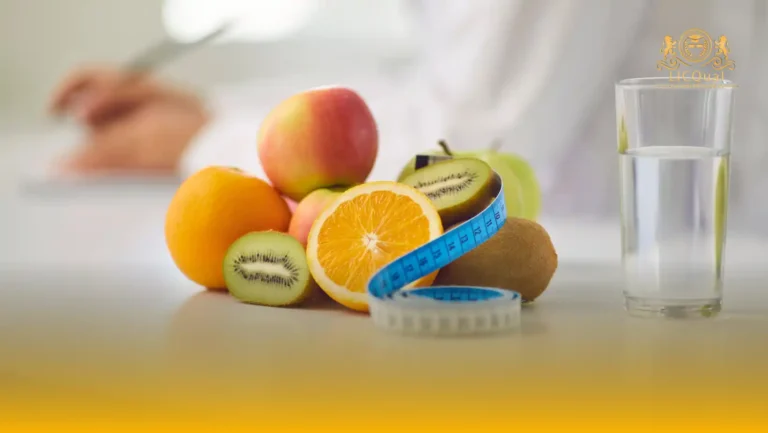The LICQual Level 3 Diploma in Sports Medicine (Dip SM) is a specialised qualification designed for healthcare and fitness professionals who wish to advance their expertise in the prevention, assessment, and management of sports-related injuries and conditions. This diploma is not intended for fresh candidates; it is aimed at experienced learners seeking to enhance their career prospects, expand their professional knowledge, and strengthen their Continuing Professional Development (CPD).
Sports medicine plays a pivotal role in maintaining the health, performance, and recovery of athletes and active individuals. Learners undertaking this qualification will gain comprehensive knowledge in areas such as musculoskeletal assessment, injury prevention strategies, rehabilitation techniques, and performance optimisation. The course also covers the physiological, biomechanical, and nutritional principles that underpin athletic performance and recovery. This ensures learners are equipped with the skills necessary to provide evidence-based care and contribute effectively to the multidisciplinary sports healthcare environment.
Centres delivering the LICQual Level 3 Diploma in Sports Medicine (Dip SM) are required to uphold high standards of training and learner support. This includes employing qualified and experienced staff, providing access to modern learning materials, case studies, and practical resources, and implementing robust assessment and quality assurance systems. Learners benefit from a structured environment that promotes professional growth, practical competence, and ethical practice.
Completing this diploma enables learners to develop specialist skills in sports medicine, enhancing their professional credibility and opening pathways for career progression, academic advancement, and meaningful contributions to athlete care and sports healthcare services.
Course Overview
Qualification Title
LICQual Level 3 Diploma in Sports Medicine (Dip SM)
Total Units
6
Total Credits
60
GLH
240
Qualification #
LICQ2200903
Qualification Specification
To enroll in the LICQual Level 3 Diploma in Sports Medicine (Dip SM) , applicants must meet the following criteria:
|
Qualification# |
Unit Title |
Credits |
GLH |
|---|---|---|---|
|
LICQ2200903-1 |
Fundamentals of Sports Medicine |
10 |
40 |
|
LICQ2200903-2 |
Anatomy, Physiology, and Biomechanics in Sport |
10 |
40 |
|
LICQ2200903-3 |
Assessment, Diagnosis, and Monitoring of Sports Injuries |
10 |
40 |
|
LICQ2200903-4 |
Prevention and Management of Sports Injuries |
10 |
40 |
|
LICQ2200903-5 |
Rehabilitation, Performance Optimisation, and Nutritional Support |
10 |
40 |
|
LICQ2200903-6 |
Ethics, Public Health, and Professional Development in Sports Medicine |
10 |
40 |
By the end of this course, learners will be able to:
Unit 1: Fundamentals of Sports Medicine
- Understand the scope and principles of sports medicine in healthcare and athletic performance.
- Recognise common sports-related injuries and their impact on athlete health and performance.
- Explain the roles and responsibilities of sports medicine professionals.
- Analyse current trends and evidence-based practices in sports medicine.
Unit 2: Anatomy, Physiology, and Biomechanics in Sport
- Describe the structure and function of musculoskeletal and cardiovascular systems relevant to sports performance.
- Explain biomechanical principles affecting movement, performance, and injury risk.
- Analyse physiological adaptations to training and exercise in athletes.
- Understand the interactions between body systems in relation to performance and recovery.
Unit 3: Assessment, Diagnosis, and Monitoring of Sports Injuries
- Conduct effective assessment and history-taking for sports injuries.
- Apply diagnostic tools and techniques to identify musculoskeletal and soft tissue injuries.
- Interpret clinical findings and imaging to support injury diagnosis.
- Monitor injury progression and evaluate recovery using evidence-based methods.
Unit 4: Prevention and Management of Sports Injuries
- Identify risk factors for sports injuries and implement preventive strategies.
- Develop injury management plans based on severity and type of injury.
- Apply evidence-based interventions to reduce recurrence and facilitate safe return to sport.
- Evaluate the effectiveness of prevention and management strategies in athletic populations.
Unit 5: Rehabilitation, Performance Optimisation, and Nutritional Support
- Design rehabilitation programmes to restore function and performance after injury.
- Apply performance optimisation techniques including conditioning, strength, and flexibility training.
- Integrate nutritional support strategies to enhance recovery and athletic performance.
- Monitor and adjust rehabilitation and training programmes based on athlete progress and feedback.
Unit 6: Ethics, Public Health, and Professional Development in Sports Medicine
- Explain ethical principles and professional responsibilities in sports medicine practice.
- Analyse public health considerations, including injury prevention and athlete welfare.
- Demonstrate reflective practice and commitment to Continuing Professional Development (CPD).
- Apply evidence-based approaches to improve sports medicine care and outcomes.
The LICQual Level 3 Diploma in Sports Medicine (Dip SM) is designed for healthcare professionals, medical graduates, and allied practitioners who want to specialize in sports injury management, rehabilitation, and performance optimization. This internationally recognized diploma is ideal for those seeking CPD accreditation, career advancement, and flexible online training that prepares them to deliver evidence-based care for athletes and active individuals.
1. Medical Doctors and Physicians
- Strengthen diagnostic and treatment skills in sports medicine
- Gain advanced knowledge of musculoskeletal injuries and rehabilitation
- Apply evidence-based approaches to sports injury management
- Improve patient outcomes with specialized training in athlete care
- Enhance professional credibility with an accredited diploma
2. Physiotherapists and Rehabilitation Specialists
- Develop expertise in injury prevention and recovery strategies
- Learn advanced rehabilitation techniques for athletes and active patients
- Expand clinical scope with a Diploma in Sports Medicine (Dip SM)
- Access CPD-accredited training for career progression
- Gain confidence in supporting multidisciplinary sports care teams
3. Nurses and Clinical Practitioners
- Build skills in managing acute and chronic sports-related conditions
- Learn patient-centered care strategies for athletes and active individuals
- Strengthen knowledge of exercise physiology and recovery methods
- Support doctors and physiotherapists in sports medicine clinics
- Add a specialized qualification to enhance career opportunities
4. Sports Scientists and Exercise Specialists
- Understand biomechanics and performance optimization techniques
- Learn injury prevention strategies for athletes and teams
- Apply exercise science principles to rehabilitation programs
- Gain insights into sports nutrition and recovery planning
- Strengthen career prospects in sports performance and health
5. Medical Graduates and Postgraduate Students
- Build a strong foundation in sports medicine for future specialization
- Gain a competitive edge in postgraduate medical applications
- Access flexible online learning while continuing clinical rotations
- Learn from expert-led modules aligned with international standards
- Earn a diploma that strengthens both academic and professional profiles
6. International Healthcare Professionals
- Designed for global learners seeking UK-accredited qualifications
- Access flexible online study from anywhere in the world
- Gain recognition with an internationally respected diploma
- Learn best practices in sports medicine aligned with global standards
- Enhance employability in hospitals, clinics, and athletic organizations
7. Professionals Seeking Career Advancement
- Ideal for those aiming to specialize in sports medicine and rehabilitation
- Boost career growth with a niche medical qualification
- Gain recognition for advanced clinical expertise in athlete care
- Open pathways to leadership, teaching, and research roles
- Strengthen your CV with a Diploma in Sports Medicine (Dip SM)
Centres delivering the LICQual Level 3 Diploma in Sports Medicine (Dip SM) must adhere to high professional and academic standards to ensure learners receive top-quality training and achieve successful outcomes. Key requirements include:
- Qualified and Competent Staff – Trainers, assessors, and academic staff must hold recognised qualifications in sports medicine, physiotherapy, sports science, or related healthcare fields, with practical experience in athlete care and performance optimisation.
- Adequate Learning Facilities – Centres should provide classrooms, practical training areas, sports clinics, or simulated environments, along with access to digital learning resources.
- Comprehensive Learning Resources – Learners must have access to up-to-date textbooks, research journals, e-learning platforms, and case studies relevant to sports medicine and rehabilitation.
- Robust Assessment Systems – Centres must implement reliable assessment methods, including written assignments, case studies, and practical evaluations, to ensure accurate measurement of learner competence.
- Internal Quality Assurance (IQA) – Structured quality assurance processes must be in place to maintain consistency and integrity in teaching, learning, and assessment.
- Learner Support Services – Academic guidance, mentoring, and professional support should be available to help learners achieve their full potential.
- Access to Technology and Digital Platforms – Centres must provide online learning tools, digital resources, and assessment platforms to enhance accessibility and flexibility.
- Compliance with LICQual Standards – Delivery must adhere to LICQual policies on quality assurance, safeguarding, equality, and inclusion.
- Accurate Record Management – Centres must maintain secure and accurate records of learner progress, assessments, and certification documentation in line with regulatory and audit requirements.
Assessment and Verification
All units within this qualification are subject to internal assessment by the approved centre and external verification by LICQual. The qualification follows a criterion-referenced assessment approach, ensuring that learners meet all specified learning outcomes.
To achieve a ‘Pass’ in any unit, learners must provide valid, sufficient, and authentic evidence demonstrating their attainment of all learning outcomes and compliance with the prescribed assessment criteria. The Assessor is responsible for evaluating the evidence and determining whether the learner has successfully met the required standards.
Assessors must maintain a clear and comprehensive audit trail, documenting the basis for their assessment decisions to ensure transparency, consistency, and compliance with quality assurance requirements.







